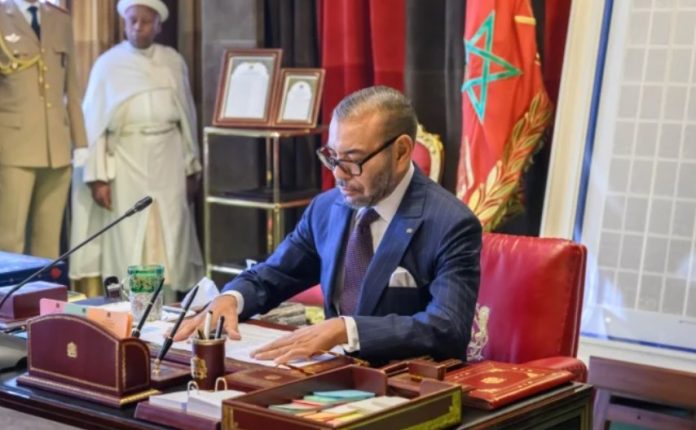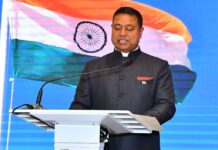On December 4, 2024, His Majesty King Mohammed VI presided over a significant Council of Ministers at the Royal Palace in Rabat. The session showcased Morocco’s ambitious preparations for hosting the 2030 FIFA World Cup, alongside vital international partnerships and transformative energy sector reforms.
The session began with an update from Fouzi Lekjaa, Minister Delegate in charge of the Budget and President of the 2030 World Cup Committee. He detailed Morocco’s progress since the announcement in March 2023 of a joint bid with Spain and Portugal. This landmark collaboration gained unanimous FIFA approval in October 2023, with the official tripartite submission made in July 2024.
The FIFA evaluation report released on November 29 praised the bid’s exceptional quality, far surpassing requirements. Mr. Lekjaa outlined the roadmap to meet FIFA’s criteria, driven by a unique mobilization effort across governmental and local authorities, public institutions, and private entities.
To ensure Morocco’s readiness, King Mohammed VI has directed the formation of an expanded organizing committee, incorporating civil society, Moroccan diaspora, and African expertise. The strategy focuses on:
- Modernizing stadiums to world-class standards.
- Expanding and upgrading airports in the six host cities.
- Strengthening transportation networks, including urban and inter-city routes.
- Launching integrated territorial upgrades to benefit regions beyond host cities.
- Boosting hospitality and commercial infrastructure to accommodate visitors.
- Enhancing medical facilities and telecommunications networks.
- Developing youth skills through extensive training programs.
The Minister emphasized that the World Cup 2030 is not merely a sporting event but a catalyst for economic growth, job creation, and global tourism, promoting Morocco’s image as a beacon of unity and sustainable development.
The Council also approved six international conventions, reflecting Morocco’s commitment to global partnerships. Four bilateral agreements focus on:
- Mutual recognition of driver’s licenses.
- Enhanced criminal justice cooperation.
- Combating transnational crime.
- Military and technical collaboration.
The two multilateral treaties address safety aboard aircraft and the establishment of the Digital Cooperation Organization, further aligning Morocco with global governance and technological advancements.
The Council concluded with the appointment of Zouhair Chorfi as President of the National Electricity Regulatory Authority. His Majesty directed the overhaul of the body into a comprehensive Energy Regulation Authority. Its expanded mandate will encompass electricity, natural gas, hydrogen, and emerging energy technologies, ensuring alignment with international best practices and Morocco’s energy sector maturity.
The Council of Ministers underscored Morocco’s forward-thinking strategies under King Mohammed VI’s leadership. From hosting the world’s most prestigious sporting event to advancing global partnerships and energy reforms, Morocco is positioning itself as a leader in innovation, sustainability, and global collaboration.





